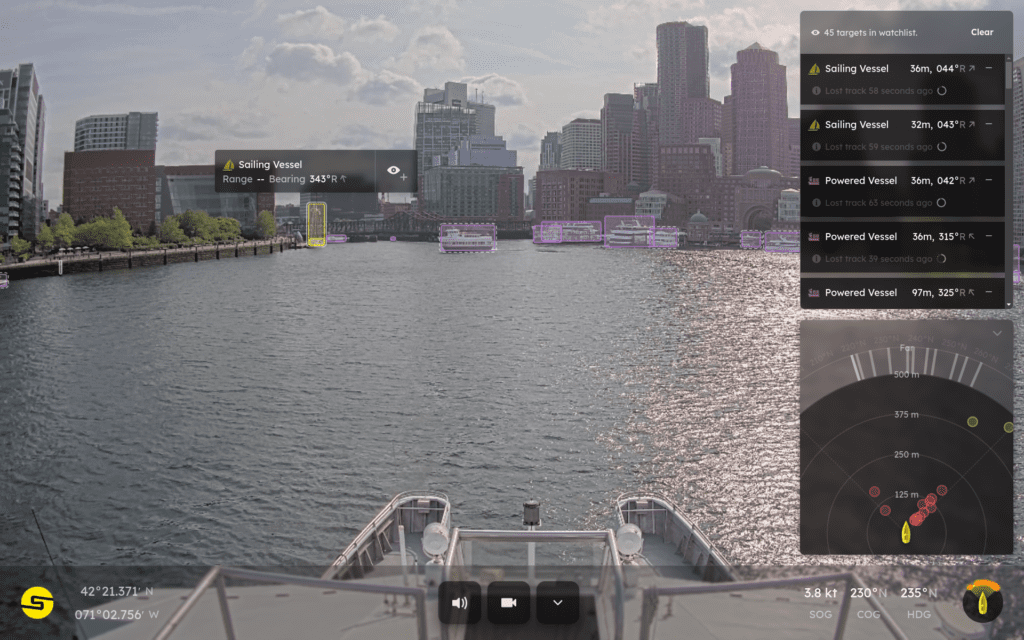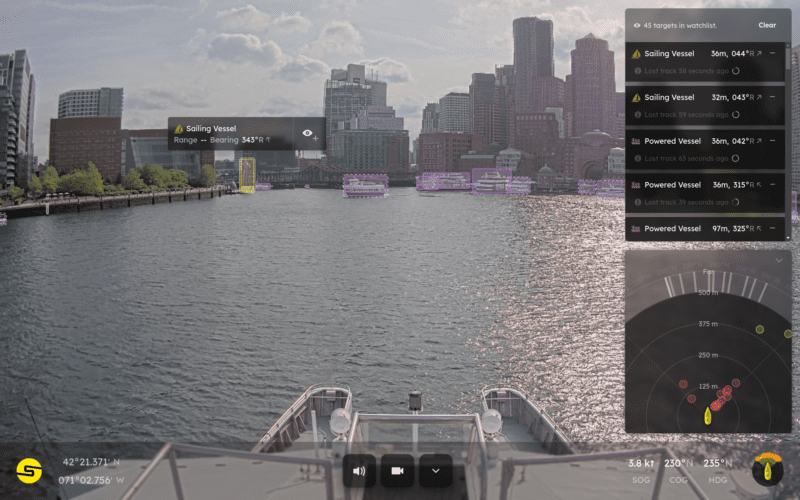(BOSTON) – Sea Machines Robotics has unveiled AI-ris, a new marine computer-vision navigation sensor designed to improve safety and performance while vessels are underway. The company revealed this new technology during Seawork2022, the largest European commercial marine exhibition.
Sea Machines’ AI-ris (Artificial Intelligence Recognition and Identification System) uses digital cameras and AI processing to detect, track, classify and geolocate objects, vessel traffic and other potential obstacles in the majority of operational conditions, day or night, to equip crew with best-in-class situational awareness. Computer vision helps improve safety for vessels and is also a critical technology for the advancement of autonomous command and control systems.

The need for this technology is clear. Boats and ships operate in the planet’s most dynamic environment and the limitations of conventional navigation sensors leave the bulk of perception work to the human eye and brain for continuous scanning of the waterway. Fatigue, distraction and confusion can lead to misses and mistakes. The U.S. Coast Guard reported that in 2020, 36 percent of boating accidents were collisions and allisions, with the primary cause being improper lookouts and operator inattention.
The commercial marine industry suffers from similar challenges. Sea Machines designed AI-ris to be ever-alert, with the ability to deliver predictable operational results that can improve vessel reliability, as well as eliminate liabilities caused by human error.
“Sea Machines is dedicated to building the future of ocean mobility. We envision a future with fewer accidents at sea. We are revolutionizing marine navigation with data-driven intelligence, autonomy and connectivity,” said CEO Michael G. Johnson, Sea Machines. “AI-ris enables a tremendous performance and safety increase. The superior capabilities of computer vision and AI will ensure a safer, more productive voyage.”
“AI-ris is always scanning for obstacles and can alert the operator of potentially dangerous situations. It also labels objects very small in size, like swimmers, kayakers or animals, to those very large, like another ship,” said Trevor Vieweg, chief technology officer, Sea Machines. “With the ability to detect, classify and geolocate such targets via optical sensors, AI-ris augments and surpasses the capabilities of existing marine sensor technologies, like radar and automatic identification system (AIS), enabling greater performance and achieving the highest levels of safety. In the future, this technology may also help responders detect marine oil spills.”
AI-ris is commercially available now and can be installed aboard existing vessels, as well as newbuilds. To learn more, click here.
– Sea Machines Robotics

